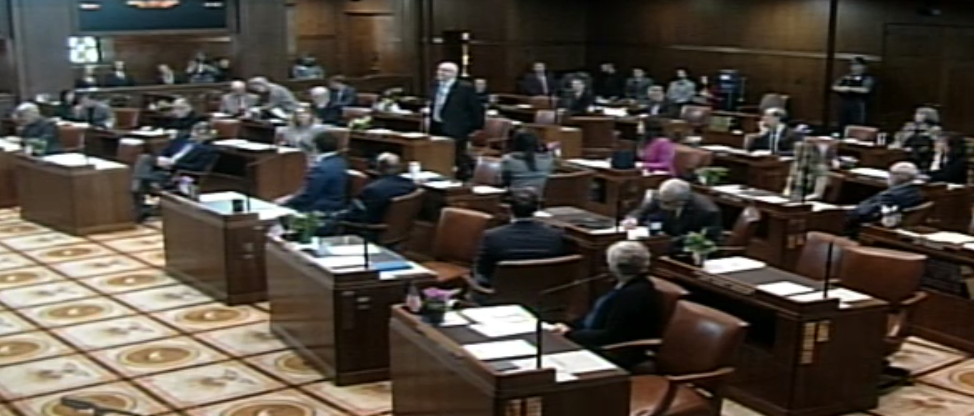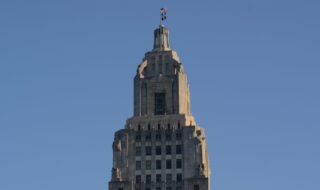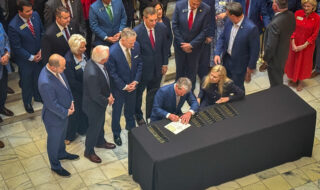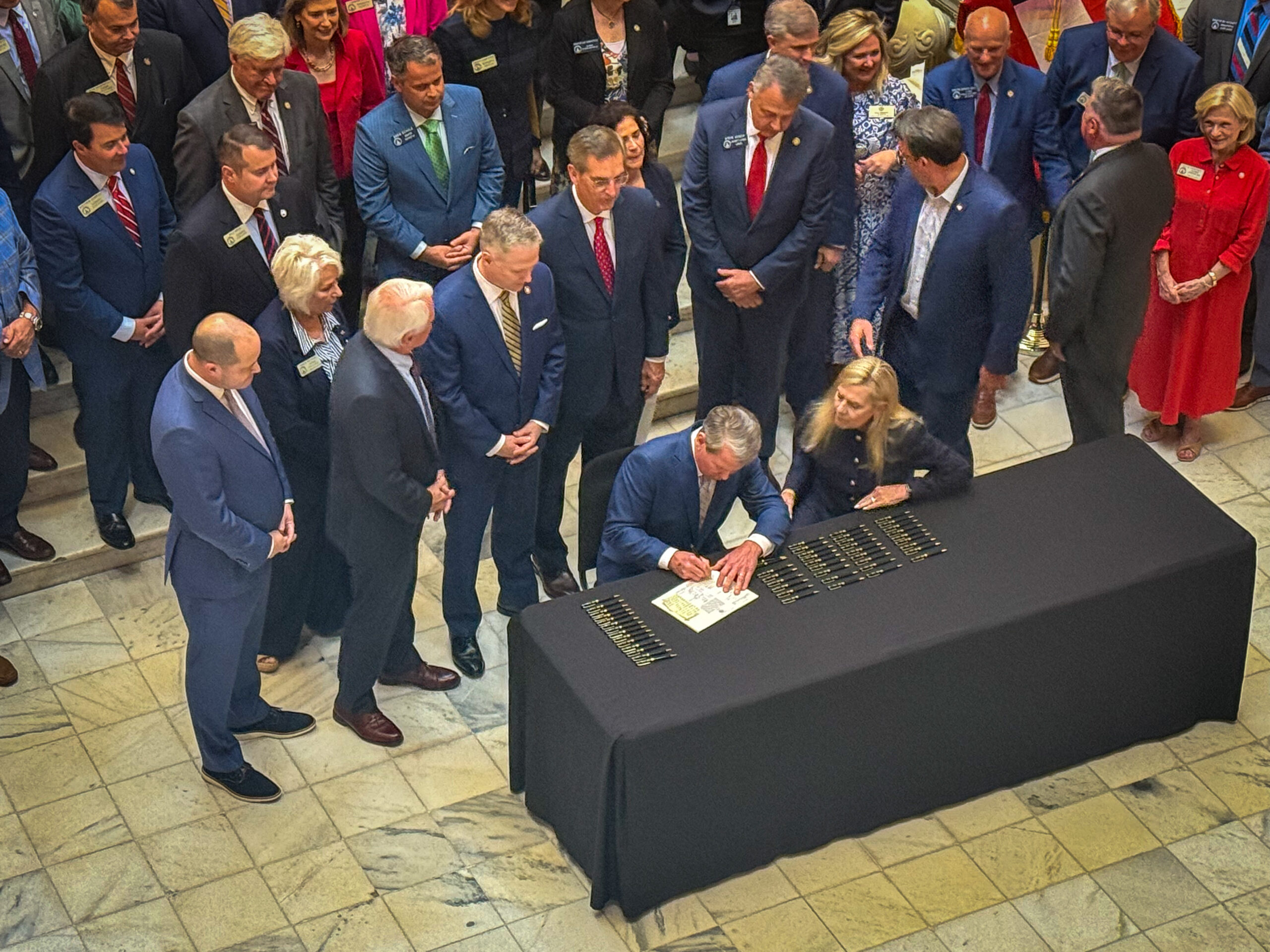February 2, 2021
A Dozen Legislative Proposals Getting NFIB's Intense Scrutiny
Less than two weeks into the 160-day session of the Oregon Legislature and already there have been 2,000 bills introduced. Reports NFIB Oregon State Director Anthony Smith, “Although many of them are related to the ongoing pandemic, or last year’s wildfires, a surprisingly large number of bills have nothing to do with helping us pick of the pieces from 2020.”
NFIB will be tracking 300 of the 2,000 bills and will give intense attention to the following 12.
- HB 2604 (Gomberg, G Smith): Reduces tax rates, reduces maximum eligible income, and modifies employment requirements for purposes of taxpayer election of reduced tax rate for certain pass-through income. Applies to tax years beginning on or after January 1, 2022. Takes effect on the 91st day following adjournment sine die.
- HB 2840 (Pham, Dembrow, Golden): Temporarily disallows certain tax expenditures. Requires personal income taxpayers and corporate excise and income taxpayers to add back amounts excluded or deducted on federal return. Disallows elective lower rate on pass-through income. Applies to tax years beginning on or after January 1, 2022, and before January 1, 2024. Temporarily disallows certain property tax exemptions. Applies to property tax years beginning after July 1, 2021, and before July 1, 2023. Advances sunset for property tax exemption for long-term rural enterprise zone. Applies to property tax years beginning before July 1, 2021. Takes effect on the 91st day following adjournment sine die.
- SB 139 (Senate Finance & Revenue Committee): Reduces the amount of income eligible for elective reduced personal income tax rate allowed for certain pass-through income. Excludes income attributable to certain types of trade or business from eligibility for a reduced rate. Applies to tax years beginning on or after January 1, 2021. Takes effect on the 91st day following adjournment sine die.
- SB 475 (Taylor): Directs Legislative Revenue Officer to report to Legislative Assembly on options for reform of provision allowing elective lower rates of personal income taxation on pass-through income, including recommendations for legislation intended to reform elective pass-through rates. Takes effect on the 91st day following adjournment sine die.
- HB 2839 (Pham, Dembrow, Golden): Disconnects from federal tax provisions, including federal repeals of previously enacted limitations on deductions, by requiring additions to federal taxable income for Oregon tax purposes. Reinstates limitations on deductions for excess business loss and net operating loss carryforwards and disallows five-year carryback of net operating loss, for Oregon personal income tax purposes. Applies to tax years beginning on or after January 1, 2018, and before January 1, 2021. Reinstates lower limitation on business interest deduction, for personal income and corporate excise taxation. Applies to tax years beginning on or after January 1, 2019, and before January 1, 2021. Requires Department of Revenue to waive penalty or interest due to underpayment or underreporting resulting from the add-back requirement. Applies to tax years beginning on or after January 1, 2018, and before January 1, 2020. Takes effect on 91st day following adjournment sine die.
- HB 2638 (Drazan, Gomberg): Limits liability for certain claims for damages arising out of acts or omissions taken during COVID-19 emergency period in reasonable compliance with government guidance related to COVID-19.
- HB 2205 (Wilde): Establishes a procedure for a person to bring an action in name of the state to recover civil penalties for violations of state law. Provides for the distribution of civil penalties recovered.
- HB 2489 (Holvey): Directs those agencies that administer certain state laws to use specific criteria to determine whether an individual is an employee or independent contractor and to cooperate in adopting rules to facilitate consistency in the application of the definition of independent contractor and provisions of Act.
- HB 2974 (Nosse): Provides that conditioning employment on refraining from using any substance that is lawful to use in this state is unlawful employment practice.
- SB 483 (Taylor): Creates a rebuttable presumption that person violated the prohibition against retaliation or discrimination against employee or prospective employee if a person takes certain action against an employee or prospective employee within 60 days after employee or prospective employee has engaged in certain protected activities. Provides that employee or prospective employee bears the burden of proof when a person takes certain action against an employee or prospective employee more than 60 days after employee or prospective employee has engaged in protected activities. Declares emergency, effective on passage.
- HB 3025 (Grayber): Adds exposure to or infection by SARS-CoV-2 to the definition of occupational disease for purposes of workers’ compensation. Specifies presumptions as to compensability for occupational disease or occupational injury that apply to subject worker’s death, disability, impairment of health, loss of work time, and expenses of medical treatment or services, including diagnostic or preventive medical treatment or services, as result of exposure to SARS-CoV-2 or COVID-19. Declares emergency, effective on passage.
- SB 488 (Taylor): Adds exposure to or infection by SARS-CoV-2 to the definition of occupational disease for purposes of workers’ compensation. Specifies presumptions as to compensability for occupational disease or occupational injury that apply to subject worker’s death, disability, impairment of health, loss of work time, and expenses of medical treatment or services, including diagnostic or preventive medical treatment or services, as result of exposure to SARS-CoV-2 or COVID-19. Sunsets provisions on 180th day following expiration or termination of Governor’s declaration of emergency concerning COVID-19 pandemic, including any extension of declaration. Declares emergency, effective on passage.
 Photo snip courtesy of the Oregon State Legislature website
Photo snip courtesy of the Oregon State Legislature website
NFIB is a member-driven organization advocating on behalf of small and independent businesses nationwide.
Related Articles

















